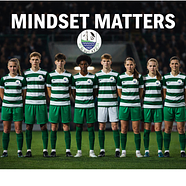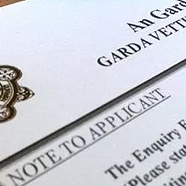Sleep: The Secret Weapon No Footballer Should Be Without
Amazing breakthrough!
Scientists have discovered a revolutionary new treatment that makes you live longer. It enhances your memory and makes you more creative. It makes you look more attractive. It keeps you slim and lowers your food cravings. It protects you from disease and dementia. It wards off colds and flu. It lowers your risk of heart disease and stroke, not to mention diabetes. You'll even feel happier, less depressed, and less anxious. Are you interested??
"Revolutionary treatment?" "Makes you look more attractive?" Let's dispense with the theatrical, shall we? But the core message – sleep is vital – rings true, even for these young footballers with dreams of glory.
Teenagers, bless their restless hearts, grapple with the usual suspects: raging hormones, late-night training, and the siren song of their smartphones at 3 AM. (We've all been there, haven't we?) But sleep, my friends, is not some dreary chore. It's Messi's left foot – the difference between burying that winner and letting your opponent steal the show.
Teenage Sleeplessness: A Statistical Epidemic
Studies paint a concerning picture. A 2023 Planet Youth study revealed that 56% of Western Irish teenagers are sleep-deprived, most admitting their phones disrupt their sleep (83% keep them in their bedrooms). Similar trends plague the US, with 73% of students reporting insufficient sleep on school nights (YRBSS, 2019).
- Phones are the enemy of sleep: 83% of teens surveyed by Planet Youth reported keeping phones in their bedrooms, which they acknowledged disrupts sleep.
- National surveys paint a similar picture: In the US, 73% of students report not getting enough sleep on school nights (YRBSS, 2019).
Check the table below to find out how much we need:
- Newborns (0-3 months): 14-17 hours per day.
- Infants (4-11 months): 12-15 hours per day.
- Toddlers (1-2 years): 11-14 hours per day.
- Preschoolers (3-5 years): 10-13 hours per day.
- School-age children (6-13 years): 9-11 hours per day.
- Teenagers (14-17 years): 8-10 hours per day.
- Young adults (18-25 years): 7-9 hours per day.
- Adults (26-64 years): 7-9 hours per day.
- Older adults (65+ years): 7-8 hours per day.
The Symphony of Sleep: The Importance of Circadian Rhythms
Think of sleep as an orchestra conductor, meticulously directing the body's internal clock, the circadian rhythm. This 24-hour cycle regulates everything from sleep to digestion, and when disrupted by late-night phone use (thanks, blue light!), sleep suffers. Here's how to get back in rhythm:
- Morning Sun: Soak up some rays – 2,000 lux (think overcast day) is enough. Ditch the sunglasses for a bit – sunlight hitting your eyes helps regulate your internal clock.
- Consistent Sleep Schedule: Go to bed and wake up at the same time every day, weekends included. This keeps your circadian rhythm humming and makes sleep a breeze.
Sleep: The Ultimate Performance Enhancer
Sleep is a magic potion for body and mind. It fuels muscle repair, sharpens focus (essential for that killer passes!), and keeps emotions in check (handy during exam season). No more missing easy goals due to fatigue or getting a red card for a pre-game jitters-induced foul. Sleep also strengthens the immune system, meaning less time on the side-lines with a cold and more time dazzling everyone with your fancy footwork.
The Teenager vs. Sleep: A Perpetual Struggle
We all know the battle. Teenagers and sleep have a complicated relationship. Do they know the "avoid screens" and "get enough exercise" spiel, but putting it into practice? That's a whole other ball game.
The culprit? Those darn smartphones! They're tiny sleep saboteurs, blasting blue light that disrupts your circadian rhythm and keeps you scrolling until the wee hours.
Scoring a Winning Sleep Routine
How do we outmanoeuvre these sleep stealers and become sleep champions? Here's your game plan:
- Banish the Phone: Phones are out of the bedroom. Invest in a comfy mattress and blackout curtains – turn your room into a sleep sanctuary.
- Be a Creature of Habit: Consistent sleep schedules regulate your natural sleep-wake cycle.
- Keep Your Cool: Ensure your bedroom is cool (around 65-68°F), dark with minimal light exposure, and quiet, considering earplugs.
- Wind Down Routine: Ditch screens at least an hour before bed. Develop a calming pre-sleep ritual, like reading, taking a warm bath, or light journaling.
- Natural Sleep Aids: Need a little extra help catching those Zzzs? Consider natural sleep aids like magnesium or L-theanine, but always consult your doctor first.
- Make Sleep Sexy: Don't just tell yourself you "need" sleep. Talk it up! Highlight how sleep fuels performance, boosts memory, and even helps you ace exams (hello, stressed teens!).
Knowledge vs. Action: Bridging the Gap for Teenagers
Teenagers often know the basics of sleep hygiene but struggle with implementation. Here's how to make sleep relevant:
- Athletes: Sleep fuels performance and recovery.
- Exam-Stressed: Sleep enhances memory and learning.
- Anxious: Sleep helps regulate emotions and manage stress.
Sleep Champion or Chump?
Sleep deprivation can mess with memory, concentration, mood, and even physical health. For footballers, sleep is crucial for peak performance. It repairs muscles, improves reaction time and coordination, allows for growth hormone release (important for development), and boosts the immune system. Sleep deprivation, on the other hand, worsens stress and anxiety, making it harder to manage emotions on and off the field.
Listen, getting enough sleep isn't just about feeling good (although that's a plus). It's about performing at your peak, both on and off the field. Sleep is your superpower. So ditch the late-night social media marathons and prioritize your sleep. Trust me, your body and your coach will thank you for it.
A Final Word: Discipline is the Name of the Game
Building a consistent sleep routine takes discipline, young footballers. It's the same discipline you need to hone your skills on the pitch. Treat sleep with the same respect you would a legendary coach's training program. The rewards – sharper focus, quicker reflexes, and a body that can handle the rigours of the beautiful game – will be your ultimate trophies. Now get some rest, and we'll see you on the pitch!







